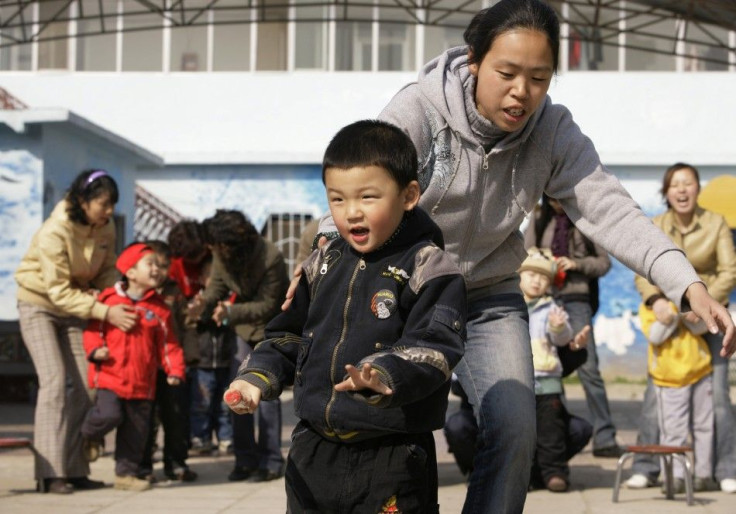Autism Link Found In Gene Mutations From Father: Study

The number of Americans diagnosed with autism has skyrocketed since 2002 -- it now affects every one in 88 children. One of the biggest barriers to finding an effective treatment is that the cause of autism isn't known. But biotechnology advances are shedding new light on the possible role of genetics.
Ten years ago [it was like] we were looking through binoculars, then we were looking at autism through a microscope, and now it's like looking at it in high definition, Andy Shih, vice president of scientific affairs for the advocacy group Autism Speaks, told CNN.
Now three separate studies, all published on Thursday in the journal Nature, have identified several gene mutations, many inherited fronm fathers, that may play a role.
There's no one gene that causes autism, James Sutcliffe, co-author of one study and an associate professor of molecular physiology at Vanderbilt University, told CNN. But what these studies do show is that several genetic mutations increase the risk of getting autism and different mutations may affect people in a different way.
The genes are likely inherited through the paternal line because as a man ages, his sperm cells are constantly dividing, which provides more opportunity for mutations to occur. Women, on the other hand, are born with all of the egg cells they will have for life.
Each study found multitudes of mutated genes in autistic children. But among the three, only two genes were found in more than one patient, suggesting to researchers that they may be the biggest risk factors.
That is like throwing a dart at a dart board with 21,000 spots and hitting the same one twice, Dr. Matthew State, co-author of the second study and a professor of psychiatry at Yale, told the New York Times. The chances that this gene is related to autism risk [are] something like 99.9999 percent.
But some researchers aren't considering this the breakthrough the study authors claim.
This is a great beginning, and I'm impressed with the work, but we don't know the cause of these rare mutations, or even their levels in the general population, Aravinda Chakravarti, researcher at the Institute of Genetic Medicine, told the New York Times. I'm not saying it's not worth it to follow up these findings, but I am saying it's going to be a hard slog.
Approximately 15 percent of all autistic children will have some form of these genetic mutations, according to one of the studies. But researchers said diagnosing autism by the gene mutations is still a long way off.
The genes highlighted are clearly the most convincing susceptibility genes that have been identified so far, but they only explain a small picture of autism, Dr. Mark Daly, coauthor of Sutcliffe's study and chief of the analytic and translational genetics at Massachusetts General Hospital, told ABC News.
Future research will focus on identifying other mutations that could play a role, researchers said.
Now we have real path forward, State told Time Magazine. As you start to accumulate these individual genes that you know are related, that opens the door to understanding the biology. Once you know the gene, you can examine the protein it makes. Then, even in people who don't have the damaged gene, adding that protein may help because a deficit in that protein might result in their autism via a different pathway.
© Copyright IBTimes 2024. All rights reserved.





















